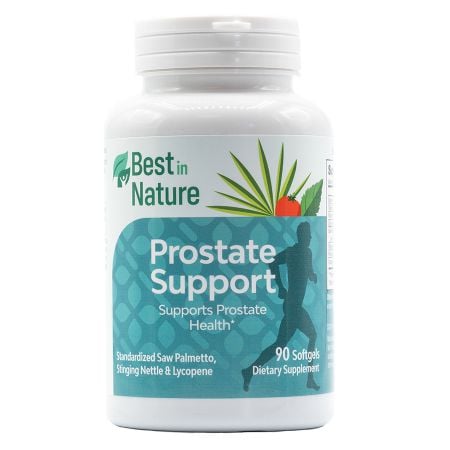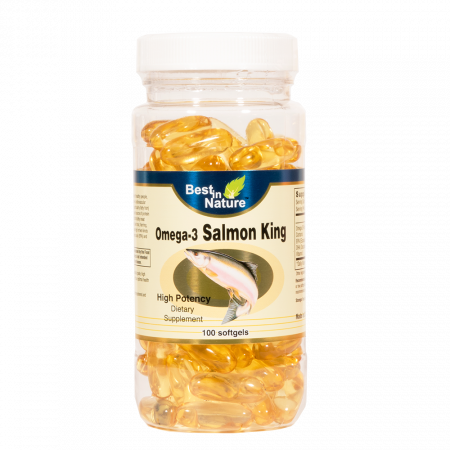
Reviewed and Updated March 24th, 2025
7 min read
As men age, their nutritional needs change, and supplementing with those changing needs in mind will improve their quality of life and protect their health. While many people may prefer to get their nutrition from the foods they eat, as we age, that becomes more challenging. For men over 50, cardiovascular health, muscle retention, and a robust immune system are prominent concerns.
Why should men over 50 take supplements?
Here are a few age-related concerns regarding nutrition:
- Medications: Some medications can deplete or block the absorption of essential nutrients.
- Poor absorption: As we get older, our bodies absorb less of specific vitamins or minerals.
- Reduced activity: Chronic illness or disabilities may cause mature men difficulty in cooking fresh meals and exercising. This may limit their ability to eat enough nutritious foods to meet their bodies' needs.
- Physical activity: Men who have managed to continue with an active lifestyle or physical training may still struggle to get enough of the vitamins and minerals they need.
- Limited diet: For many reasons including a diminishing appetite, many men over 50 eat less giving them fewer opportunities to get their essential nutrients from food.
- Age-related chronic illness: Various illnesses might deplete certain vitamins or require supplementation above normal to manage.
What are supplements?
Dietary supplements can help to fill in or “supplement” the gaps in your diet and ensure you’re getting enough of key nutrients. Although they come in familiar forms like gels, gummies, capsules tablets, or syrups, they’re defined and regulated differently from medication.
Learn more about vitamins here.
Heart Health
1.Fish oil
The Omega 3 fatty acids in fish oil help protect against heart and artery disease and stroke by lowering triglycerides in the blood. Keep in mind that chronic inflammation is often seen in aging and is linked to diseases such as arthritis, heart disease, and cognitive decline. Omega 3’s have anti-inflammatory effects that can alleviate these conditions by lowering inflammation in the body. Studies show that patients with heart failure who take fish oil supplements experienced a reduction of related hospitalizations (and subsequent deaths). Another study showed that supplementation with fish oils improved heart health and function.
Omega 3 can be found naturally in certain types of fish, vegetables, and plant sources (although in smaller amounts). These fatty acids are not produced in your body, so they must be obtained from the foods you eat or supplements.
Recommended Daily Intake: 200 - 500 mg
2. Coenzyme Q10 (CoQ10)
This substance is found in every cell in your body to produce energy for cell growth and care. It also acts as an antioxidant that will protect you and your heart from damaging free radicals. Free radicals play a part in causing heart disease, cancer, and other diseases. This is why antioxidants are so essential to maintaining our health as we age.
CoQ10 is present in many foods that you eat, although only in small quantities. While more significant amounts can be obtained by eating organ meats (heart, kidney, and liver) and also soy oil, sardines, mackerel, beef, and peanuts, some of these foods can be problematic for those with gout or high cholesterol.
CoQ10 can also help with recovery after a strenuous exercise routine and may even assist in mitigating some of the adverse side effects of certain medications for the heart, muscles, and other organs such as the muscle aches caused by taking statins. Furthermore, many older adults use statins to lower cholesterol, which can lower the body’s natural CoQ10 levels therefore, CoQ10 supplementation can be very beneficial and help relieve some of the side effects of statin use, such as muscle pain and weakness.
Recommended Daily Intake: 50 milligrams to 1,200 milligrams per day (there is a wide range due to how different individuals’ needs may be.)
Related: 15 Tips to Maintain Healthy, Flexible Joints
Bone Health
3. Calcium
According to the National Osteoporosis Foundation (NOF), one in four men over 50 years old suffers injuries related to osteoporosis. And men of this age group are more likely to suffer from osteoporosis than to get prostate cancer. Calcium is a mineral that supports bone strength so it is vital to ensure you’re getting your daily recommended intake. Calcium also helps regulate hormones that impact bone density and muscle maintenance, its adequate intake can support hormonal balance as men age. Food sources of calcium include dairy products and some green vegetables especially dark leafy greens.
It’s worth mentioning however that regular weight-bearing activity has been found to be just as important as getting enough calcium when it comes to maintaining strong bones.
Recommended Daily Intake: 1,000 mg
4. Vitamin D
The NOF pairs vitamin D with calcium because it helps to increase calcium absorption. Additionally, it also helps strengthen the immune system, which weakens with age, making older adults more vulnerable to infections. Vitamin D can be obtained from sunlight, certain foods, and of course, supplements. The foods that contain vitamin D (in small quantities) are wild-caught fatty fish like mackerel, tuna, and salmon. It is also added to some dairy products and juices.
Those who aren’t getting enough Vitamin D via their diet and especially those who live in places where sunlight is limited may consider supplementing.
Recommended Daily Intake: 800 - 1,000 IU
Prostate Health
5. Saw Palmetto + Zinc
Saw Palmetto is often paired with zinc to promote better prostate health. The prostate is a small organ situated between your urethra and bladder. As men age, the prostate may grow and cause several urinary problems, but this natural supplement can stop the growth of the prostate. Since Saw Palmetto has this growth-hindering property, it is also used to reduce your chances of developing prostate cancer. Currently, saw palmetto is available as a dietary supplement to help with urinary symptoms related to an enlarged prostate, as well as pelvic pain, migraines, and hair loss.
Zinc supports the work of the Saw Palmetto, as it also promotes the health of male reproductive organs, hormone levels and protects against oxidative stress. Zinc helps control prostate cell growth and function, so maintaining adequate levels is important for the prevention of prostate enlargement.
Saw Palmetto may also be used for low libido, low sperm count, and male pattern hair loss.
Recommended Daily Intake: 320 mg in two doses
6. Vitamins A, C, and E
These three vitamins all have antioxidant properties, meaning they protect your cells from the damage from free radicals. Your body makes some of its own antioxidants, but antioxidant supplements help achieve a cleaner sweep of your system. Additionally, vitamin E may slow the progression of osteoarthritis because it stimulates the growth of cartilage cells, and may also reduce inflammation.
Recommended Daily Intake: Vitamin A - 900 mcg; Vitamin C - 400 mg; Vitamin E - 22.4 IU
Digestive and Immune Health
7. Probiotics
A number of factors can change our digestion as we age. Men over 50 may find their digestion suffers from factors including changes in stomach acidity, hydration, medications, tooth decay and less active lifestyle. Probiotics, which are similar to your gut’s good bacteria, can aid in digestion by producing B vitamins which help us to digest food. Probiotics are often associated with yogurt, but also can be found in kimchi, miso, kombucha, sauerkraut, and other fermented foods.
Studies show that probiotics also support a robust immune response.
Recommended Daily Intake: 50 - 100 Billion CFU (colony forming units)
Brain Health
8. Vitamin B12
This vitamin supports the proper formation of red blood cells, which is essential to nerve health. Deficiencies of B12 show up as tingling in extremities and memory loss and can cause anemia, fatigue, and weakness. B12 has been shown to improve brain function and support cognitive and nerve health, whether or not they have developed dementia. Absorption of B12 decreases as we age, which can result in neurological issues like memory loss and cognitive decline, so men over 50 could often benefit from supplementation.
Recommended Daily Intake: 2.4 mg
Related: Digestive Enzymes vs. Probiotics: What You Need to Know
Sexual Health
Virility and sexual health are affected by healthy circulation, prostate health, stress management, and other factors. That being said, many herbs have a history of being used to increase libido with growing clinical evidence to support their use. So we combined all of them into a convenient capsule you can find out more about here.
How to Choose
When choosing which vitamins or supplements to take, it’s best to consult with your doctor beforehand to see if they can worsen health conditions or react negatively with medications you’re taking. They may also be able to give insight on which nutrients you are lacking and what type of supplements would be most beneficial. It is also recommended to avoid any unwanted ingredients in your supplements like artificial colorings or fillers. Other things to consider before purchasing supplements is
- Cost - Some vitamins and supplements can be more expensive than others and not all products have the same amount of doses per bottle.
- Content - Not all products contain the same nutritional content and ingredients
- Form - Whether you prefer a capsule, tablet, or chewable gummy it is best to see what forms your supplements come in and which best fits you.
Bottom Line
In summary, our health needs change over time. For men who are in this demographic, it is highly recommended to evaluate their health risks and whether any vitamins, supplements or lifestyle changes should be considered.
This article is provided for informational purposes only and is not intended to be used as medical advice. If you have immediate concerns about your health, please seek the help of a medical professional.
© 2025 Best in Nature All rights reserved









Validate your login
Sign In
Create New Account